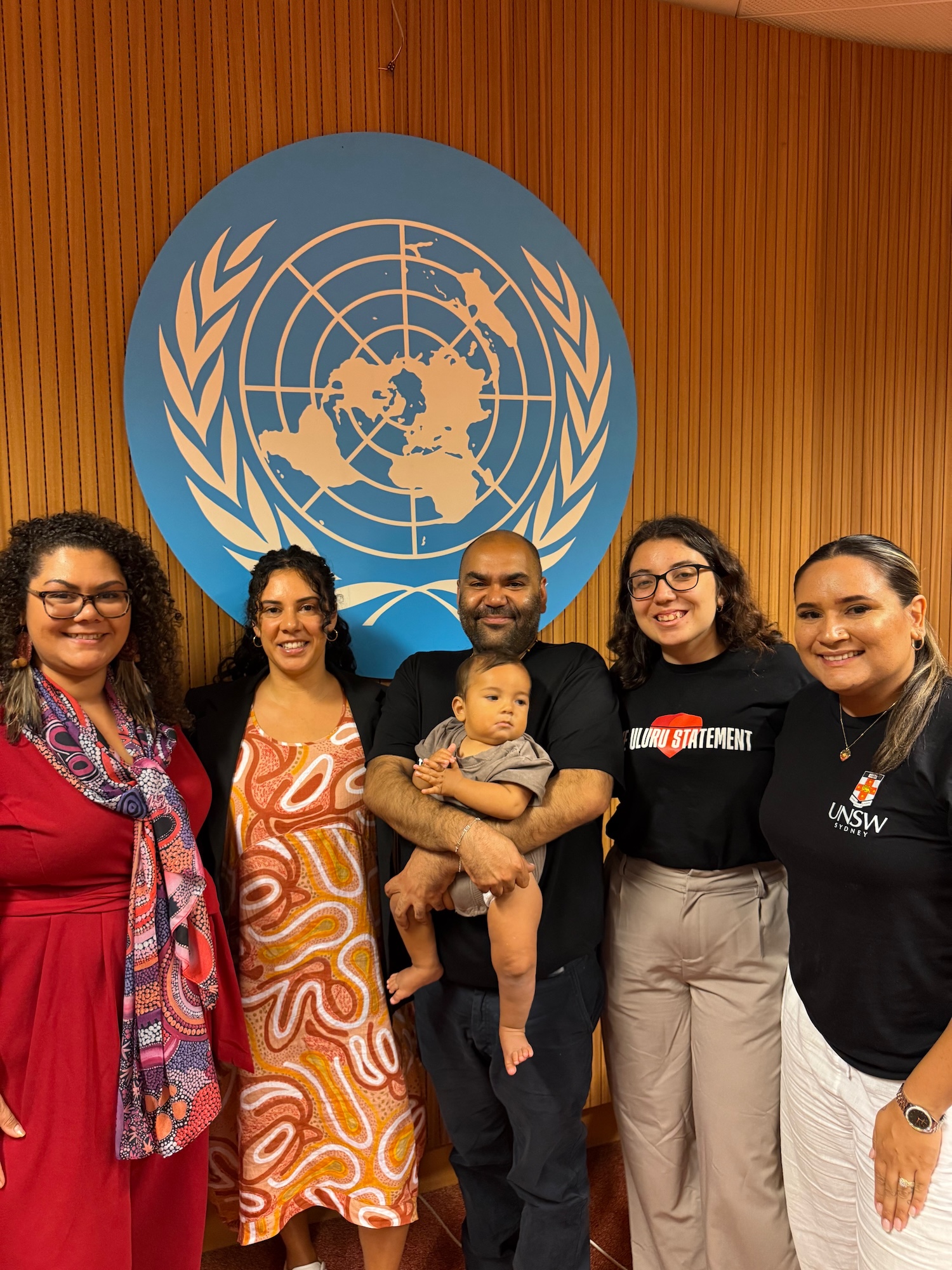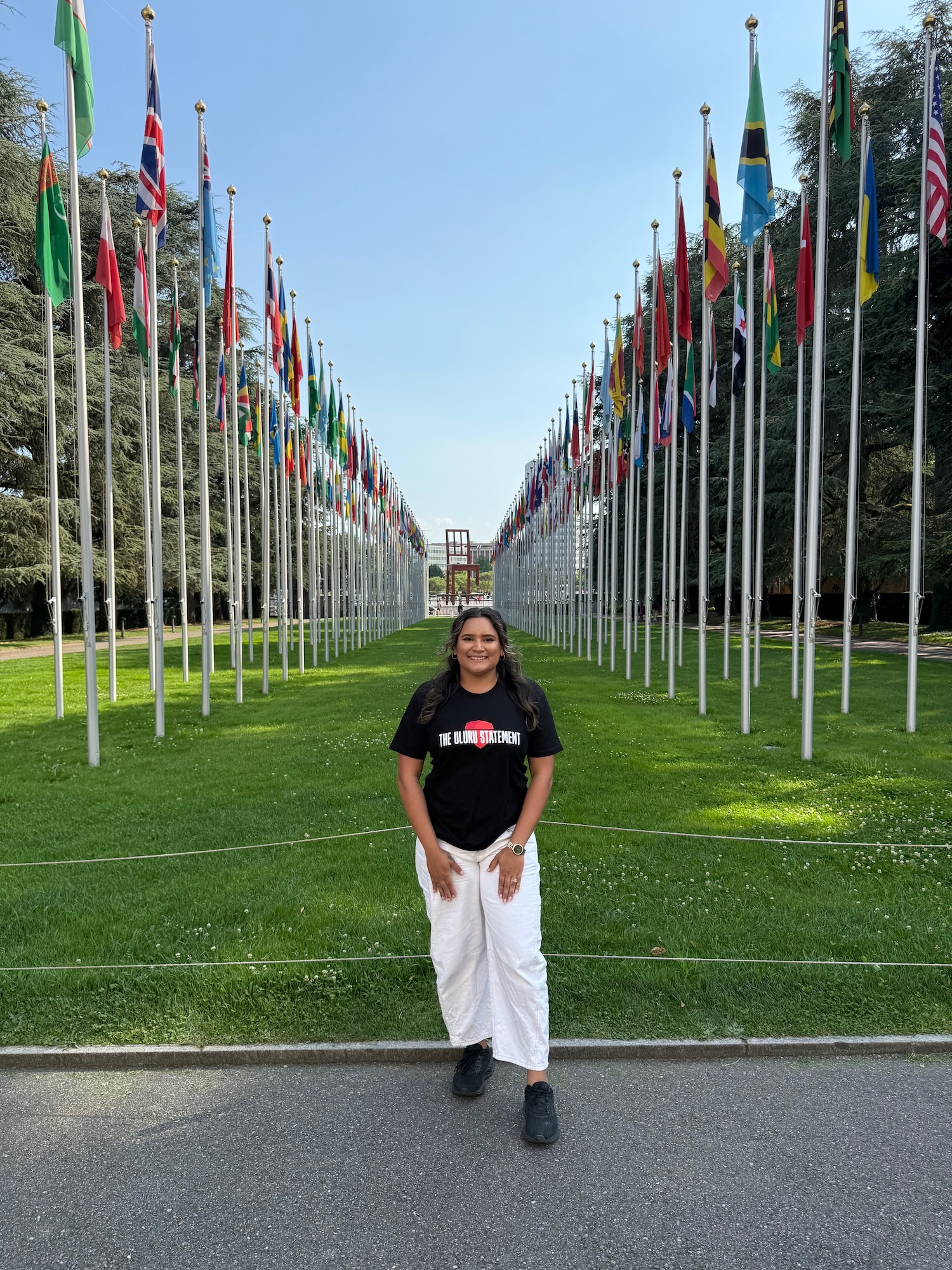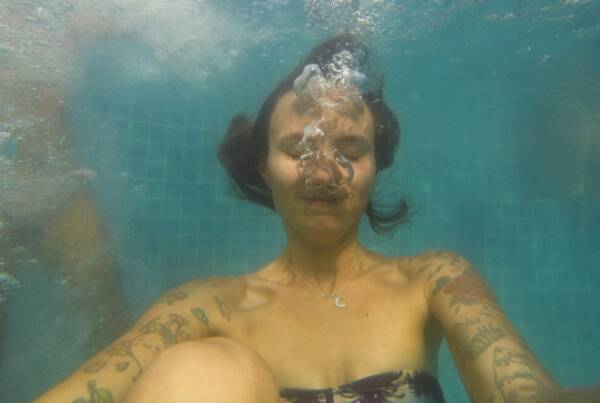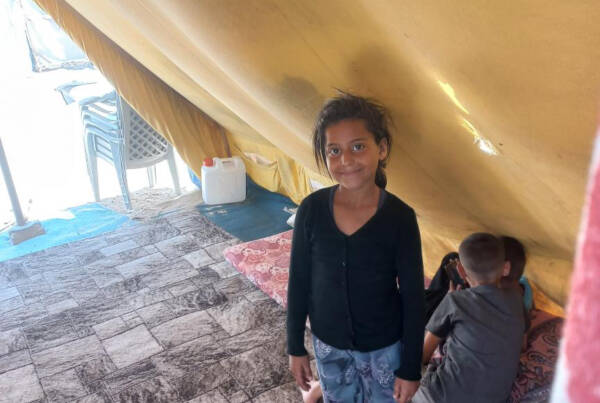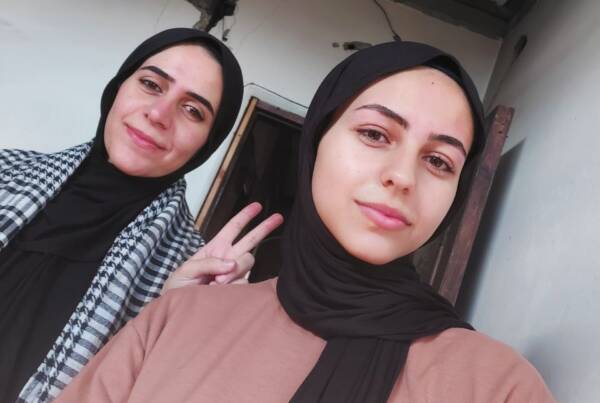Interview of Allira Davis by Freya Bennett
Earlier this year, the Uluru Youth Dialogue under a Uluru Youth delegation travelled to the United Nations Headquarters in Geneva, Switzerland, to attend the Expert Mechanism on the Rights of Indigenous Peoples (EMRIP). Among them was Allira Davis, a passionate youth leader and Co-Chair of the delegation. In this candid interview, she reflects on the experience, the urgency of structural reform, and the persistent neglect First Nations communities continue to face in Australia.
The journey to constitutional recognition lives on, and Allira Davis is committed to ensuring young voices are heard.
You recently represented the Uluru Youth Dialogue at the United Nations. What was the purpose of the trip, and how did it feel to speak on that global stage?
The purpose of our delegation was to represent the voices of young Aboriginal and Torres Strait Islander Peoples and to advocate for structural reform in Australia. Speaking at the UN was a powerful moment – it placed our challenges on an international stage and made it very clear: Australia still isn’t doing enough for its First Nations people. It was an honour, but also a stark reminder of how far we have to go.
What message did you deliver to EMRIP on behalf of Australia’s First Nations Peoples?
I delivered an intervention calling on the Australian Government to urgently reform laws and policies across all jurisdictions. These reforms must be shaped by a process led by our communities – by Aboriginal and Torres Strait Islander families, leaders, and experts. I specifically called for the Uluru Statement from the Heart to be embedded in all national strategies, especially the principles of self-determination and political participation. The need for structural reform in Australia is now.
You mentioned Australia is falling behind. Can you expand on how and why?
Absolutely. Since the Royal Commission report in 1991, there have been around 602 Aboriginal deaths in custody, yet still no real accountability has been made. Compensation for stolen lands remains inadequate. Our children are in and out of out‑of‑home care systems far too often. And the most recent Productivity Commission’s report on Closing the Gap (July 2025) reveals that still only four out of 19 national socio‑economic targets are on track to be met – this includes areas like preschool enrolment, employment, and land and sea rights – while critical domains such as adult imprisonment, child welfare (out‑of‑home care), suicide, and childhood developmental outcomes are worsening.
That alone is unacceptable – but when you go a step further and compare Australia’s progress to that of other settler colonial nations, the contrast is stark. Unlike Australia, countries like Canada and New Zealand have enshrined Indigenous rights in law: Canada’s constitution recognises Indigenous Treaty rights and supports political representation through institutions like the Assembly of First Nations, while New Zealand has had dedicated Māori parliamentary seats since the 1860s. However, even looking at what’s going on in Aotearoa their treaty getting questioned is upsetting and we all need to stand in solidarity. Our government has been given all the tools, knowledge, and recommendations needed to take the next steps. Unfortunately, the delay is not due to complexity or advice from our people – it’s due to a lack of political will and care, where First Nations people continuously get treated like a political football match.
What do you think is at the heart of this systemic failure?
The core issue is the continued exclusion of our people from key decision-making opportunities. Policies are made about us, without us. We’re seen as a statistic or targets, but not as partners in this change. Our lives and futures too often feel like they don’t matter in the systems that govern us. That fundamentally has to change in order for us to achieve true recognition.
What specific changes are you calling for right now?
Firstly, I am calling urgently for a review of the Closing the Gap targets, to ensure they’re effective and community-led. The Coalition of Peaks is a Government-funded body – but we need community leaders and members involved in this process. Additionally, implementations of the recommendations from the Aboriginal Deaths in Custody report. I am calling for structural reform across all levels of government, informed by self-determination and community consultation. And finally, I am calling for the mandate of the Uluru Statement to be implemented. These calls remain relevant to this day, and it is our job to ensure we continue these conversations.
There is, of course, more that needs to be done following this, but this is where we need to start to progress meaningful change.
How has the failed referendum impacted you and your work?
It was heartbreaking. The Referendum was a chance to embed an Aboriginal and Torres Strait Islander Voice into our Constitution, and it was lost. Now, we’re in limbo again – just like our parents, grandparents and the generations before us. We’re still having the same conversations. But we won’t stop. We are still pushing, just like they did. I see a change in my lifetime.
What message do you want to leave with readers, especially young Australians?This is my intervention – not just to politicians and government but to all Australians. Walk with us. Listen to us. Support meaningful, urgent change. The Uluru Statement ends with:
“We invite you to walk with us in a movement of the Australian peoples for a better future.”
That invitation still stands.

